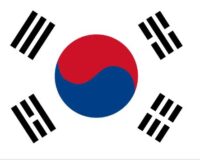The Central Bank of Nigeria (CBN) has cut interest rates on all intervention facilities from nine to five per cent per annum.
The regulatory forbearance would allow banks to restructure loans given to sectors severely affected by the Covid-19 pandemic and strengthen the Loan to Deposit Ratio (LDR) policy, which has resulted in a significant rise in loans provided by financial institutions.
In a circular released at the weekend, the apex bank said the move was to address the effect of the Covid-19 pandemic on the Nigerian economy.
CBN Director, Financial Policy and Regulation Department, Chibuzo Efobi, explained that in uncertain times, there was always a way to ensure that businesses survived, including granting forbearance.
He said the regulatory forbearance also includes restructuring of credit facilities impacted by Covid-19.
In the circular addressed to all banks and other financial institutions, Efobi said the extension of the five per cent per annum interest rate on all CBN intervention facilities was for one year, adding that the policy took effect retrospectively from February 28, 2022.
CBN’s data showed that total gross credit to businesses rose from N19.4 trillion to N23.5 trillion in the last one year, representing over 21.1 per cent increase.
In a state of the economy and financial sector report, the apex bank said agriculture, manufacturing, power and healthcare took the lion share of the loans disbursed.
The loans to benefit from the interest rate cut include N1 trillion facility in loans to boost local manufacturing and production across critical sectors of which 53 major manufacturing projects, 21 agriculture-related projects and 13 service projects are being funded.
The list also includes the N100 billion intervention fund for pharmaceutical companies and healthcare practitioners meant to expand and strengthen the capacity of the healthcare institutions that will also benefit from the fund.
The N50 billion target credit facility for affected households and small and medium enterprises will also benefit from the forbearance policy will equally benefit from the policy shift.
The CBN also earlier approved regulatory forbearance for restructuring of credit facilities in the Other Financial Institutions (OFIs) sub-sector to further mitigate the impact of the pandemic on households, businesses and regulated institutions.
It said OFls were granted leave to consider temporary and time-limited restructuring of the tenor and loan terms for households and businesses affected by Covid-19, subject to the issued guidelines for restructuring affected credit facilities in the OFI sub-sector.
Other specific policy measures, outside loans, undertaken to stabilise the economy and businesses in the face of the pandemic include the reduction of the monetary policy rate from 13.5 to 11.5 per cent to improve the flow of credit to households and businesses.
The CBN said it will continue to monitor developments and implement appropriate measures to safeguard financial stability and support stakeholders impacted by the Covid-19 pandemic.
The CBN increased the required minimum LDR to 60 per cent in July 2019 and further reviewed it forward to 65 per cent later in the year.
The LDR policy was meant to ensure that banks lend at least 65 of their deposits to Micro Small and Medium Enterprises (MSMEs) or be sanctioned.
The apex bank noted a significant increase in the size of gross credit by Deposit Money Banks to customers, hence retaining it at 65 per cent in January 2020.
Although the policy contributed to increasing lending to the economy but did not substantially bring about a reduction in the cost of funds. This means that, despite increased access to credit, Nigerians are still paying as much interest rates to the commercial banks.







